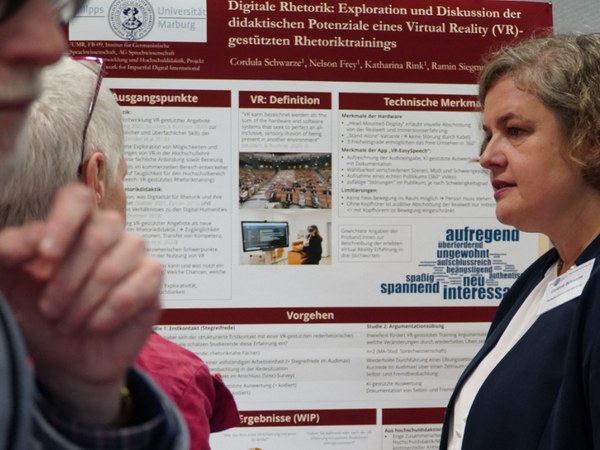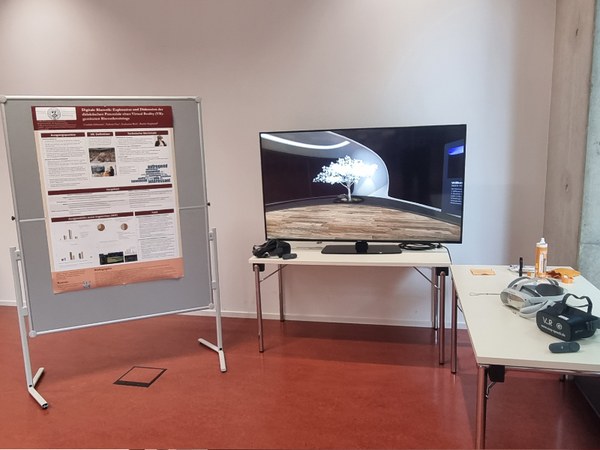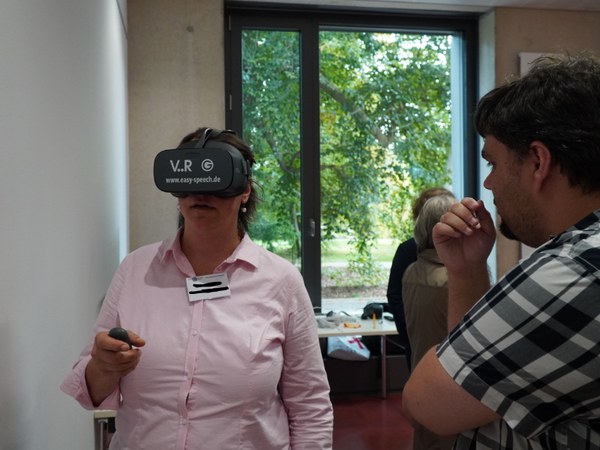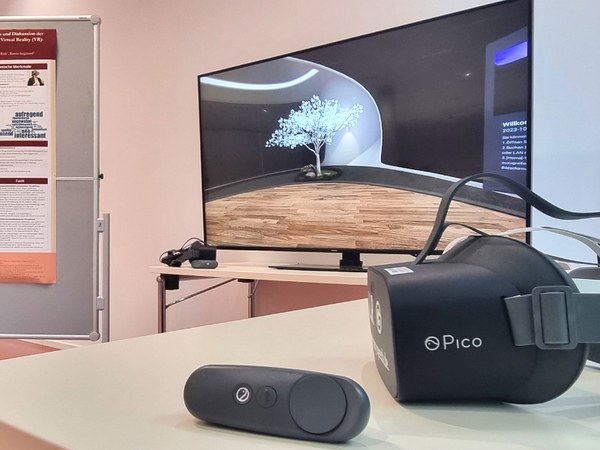14/12/23 | Virtual reality - a topic for rhetoric?
|
|
Virtual reality - a topic for rhetoric? How can virtual reality-based rhetoric training programs enhance university teaching by providing various opportunities and instructional advantages? This question was investigated by temporary professor Dr Cordula Schwarze, Nelson Frey and Katharina Rink from the Speech Science working group at the Institute of German Linguistics (UMR) together with Ramin Siegmund from NIDIT NIDIT in an initial empirical study. The project initially came about rather by chance: the "Digital Rhetoric" seminar led by Cordula Schwarze was given the opportunity to try out a rhetoric-training app with virtual reality support in the Lab for Innovative Teaching, and to evaluate it from a professional rhetorical perspective. This great enthusiasm quickly gave rise to the idea of exploring the potential, limitations and challenges for speech science. Viable concepts for the study were then developed in joint discussions. Ramin Siegmund accompanied the research group in their project from the very beginning. In the process, it became evident time and again how crucial the voices of all stakeholders were in collaboration. While the working group provided the technical and research expertise, NIDIT ensured the technical side and continuously trained the experts in the appropriate and safe use of the technology. With immersive technology in particular, ensuring that the experience for users is as conflict-free as possible is essential and not trivial. A highlight of the joint work was the presentation of the first results from the research project at the speech science conference in Marburg in October 2023. The conference was entitled "Clarifying | Arguing | Arguing: Current perspectives in argumentation research". In line with this, virtual reality in rhetoric didactics introduced a fresh viewpoint to academic discourse. The group showcased a poster titled "Digital rhetoric: exploration and discussion of the didactic potential of virtual reality (VR)-supported rhetoric training" ((accessible in german at DOI: 10.13140/RG.2.2.17533.74727). During the poster session, interested attendees had the chance to experience the VR application first-hand and engage in discussions about the preliminary findings. The conversations revolved around their implications for new topics in speech science research and their significance for rhetoric didactics. This opportunity was actively utilised and led to many exciting discussions. In a joint review, the group emphasised that the close and constructive collaboration between the specialist and NIDIT was indispensable for the study and its presentation and led to an excellent result.
|
|---|




